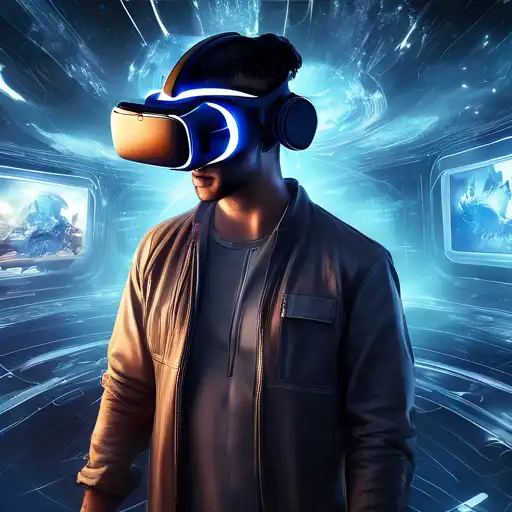Introduction to Virtual Reality
Virtual Reality (VR) has transformed the way we interact with digital content, offering an immersive experience that goes beyond traditional screen-based interactions. This technology has found applications in various sectors, including gaming, education, and healthcare, providing users with a new dimension of experience.
The Evolution of Virtual Reality
The journey of VR from a conceptual idea to a mainstream technology is fascinating. Initially developed for gaming, VR has now expanded its horizons, offering solutions for training simulations, virtual tours, and even therapeutic purposes. The evolution of VR technology has been marked by significant advancements in hardware and software, making it more accessible and realistic.
Applications of Virtual Reality
VR's versatility allows it to be applied in numerous fields. In education, it offers immersive learning experiences, enabling students to explore historical sites or scientific concepts in a virtual environment. In healthcare, VR is used for surgical training and patient rehabilitation, showcasing its potential to save lives and improve outcomes.
- Gaming: VR provides an unparalleled immersive gaming experience.
- Education: Enhances learning through interactive simulations.
- Healthcare: Offers innovative solutions for training and treatment.
- Real Estate: Allows virtual property tours, saving time and resources.
Challenges and Future Prospects
Despite its advancements, VR faces challenges such as high costs and the need for powerful hardware. However, with ongoing research and development, the future of VR looks promising. Innovations like wireless VR headsets and more realistic simulations are expected to drive its adoption further.
For those interested in exploring more about emerging technologies, VR represents a significant leap forward. Its ability to create fully immersive environments opens up endless possibilities for innovation and creativity.
Conclusion
Virtual Reality is more than just a technological novelty; it's a tool that has the potential to revolutionize how we learn, work, and play. As VR continues to evolve, it will undoubtedly unlock new dimensions of experience, making the virtual world indistinguishable from reality.
